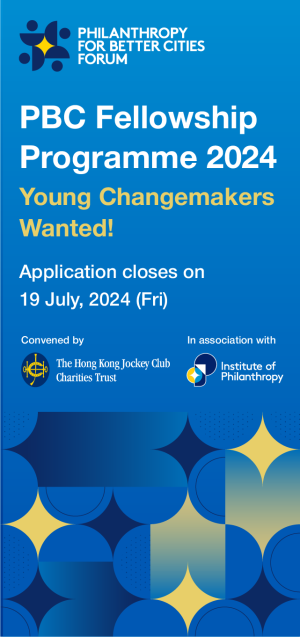 This was my very first visit to Russia so the combination of the excitement of new places and my expectations regarding the meeting itself meant that I arrived at the conference venue in Peterhof, Russia brimming with anticipation. The first evening was spent catching up with colleagues from the international philanthropy networks and enjoying a welcome event in the hotel restaurant – which looks over a small lake. My attention was split between the discussions indoors and the fact that although, according to the hands on my watch, it was night time, no darkness was falling outside. Naturally I had read about the ‘White Nights’, but I found the actual experience almost surreal. When I ventured outside at about 11 that evening I saw immediately across the road the ornate and characteristically onion-domed St Peter and Paul Cathedral – bathed in apparently unquenchable light.
This was my very first visit to Russia so the combination of the excitement of new places and my expectations regarding the meeting itself meant that I arrived at the conference venue in Peterhof, Russia brimming with anticipation. The first evening was spent catching up with colleagues from the international philanthropy networks and enjoying a welcome event in the hotel restaurant – which looks over a small lake. My attention was split between the discussions indoors and the fact that although, according to the hands on my watch, it was night time, no darkness was falling outside. Naturally I had read about the ‘White Nights’, but I found the actual experience almost surreal. When I ventured outside at about 11 that evening I saw immediately across the road the ornate and characteristically onion-domed St Peter and Paul Cathedral – bathed in apparently unquenchable light.
The conference began the next morning with general introductions among the 60-odd participants from 19 countries (of which 14 were emerging market countries), facilitated by Natalya Kaminarskaya of the Russian Donors Forum. As Natalya termed it, the aim of the forum was to ‘build a wide road to emerging market philanthropies’.
Sustaining social justice philanthropy
The opening plenary focused on philanthropy for social change – which immediately translated for me into social justice philanthropy, a topic that has been much on my mind of late. This is the eternal contradiction with which many philanthropy professionals wrestle: that much of the philanthropy and social investment taking place is more ameliorative than transformational; more about maintaining than challenging the status quo.
This worry is particularly acute in South Africa at present, given persistent and growing inequality coupled with the relentless nature of social justice challenges – access to education, health, gender-based violence, exacerbated by an overarching culture of corruption. All these contribute to the growing gap between those who benefit from the current political and economic policies and those who grow increasingly poorer and more marginalized. CAF Southern Africa is currently engaged in research on giving by ordinary South African citizens. We intend to mount a campaign to encourage increased giving with more ‘social change’ impact as we release the results of our research through the media.
How to influence a philanthropy that supports democratic values and helps to build just societies is surely one of the most important concerns for philanthropy support organizations at this time. This is particularly true in ‘emerging societies’, where the more formal modes of giving are still developing. Hence Natalya’s ‘wide road’ conception really caught my imagination. Without a progressive philanthropy that is willing to fund both the symptoms and the causes of discrimination, organizations that advocate for social change cannot operate. Traditionally these organizations have been supported by hundreds of large international foundations and government aid organizations. However, this model is not sustainable, and in South Africa, the context I know best, there is now an acknowledged crisis of sustainability for social justice organizations.
Harnessing indigenous philanthropy
Given these concerns I was particularly interested in the breakout session that looked at the potential for involvement of ordinary people in ‘indigenous’ philanthropy. But as I listened to the debates – and heard again the obeisance paid to all the myriad forms of community support that exist in poor communities – I wondered whether it is indeed possible to harness that innate care and energy that lives in almost all ‘emerging societies’: how can philanthropy professionals influence increased giving towards transformation of the conditions that create the need for giving in the first place? Can and should the caring collectivism manifested through what some researchers have termed the economies of ‘affection’ and ‘obligation’ be leveraged, perhaps combined with other forms of giving, and invested in actual social change? Perhaps community foundations provide the best model, or perhaps we need simply to accept that people who give will always be motivated by different factors, along a spectrum from emotion to pure business purpose – and then perhaps there are a few mavericks who aspire to ‘change the world’.
Communicating philanthropy
During the session on communicating philanthropy there was general agreement that effective philanthropy requires marketing that builds public awareness. Here the question of terminology inevitably arose: it was generally agreed that if we want a philanthropy understood and practised as a tool for change, we have to claim the word and contextualize it appropriately – ie not in its welfarist or paternalistic guise, but as an accessible, strategic and enabling medium for change.
In regard to social justice philanthropy, a more generally accessible discourse has to be used in the public arena: if we as philanthropy professionals wish to encourage support for social change organizations, we need to help them to appeal to the real interests of donors. For example, advocates for educational reform can explain how their work will ensure a skilled workforce; reference can be made to the society-wide benefits of economic development. Organizations working towards freedom of expression can give examples of the benefits of access to information, etc.
At the concluding session of the conference many, many ideas reflecting the deliberations of the meeting were suggested. For me this discussion chimed with Natalya’s ‘wide road’ conception in the opening session: ‘emerging societies’ have much in common and also many differences. I am therefore confidently anticipating that the outputs of this meeting will take us all forward on a ‘wide road’ towards the social changes so badly needed in our various countries.
Colleen du Toit is CEO of CAF Southern Africa
For more information about the Forum
http://www.emergingforum.org






Comments (0)